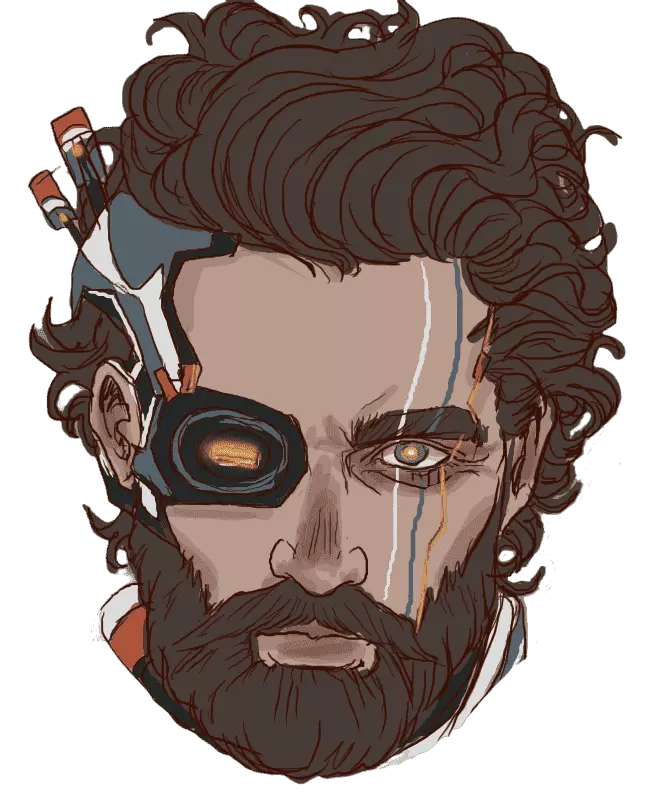Are Republicans already unironically upset that the majority of examples of misinformation are from conservative sources?
Credibility works in mysterious ways
I honestly hope that isn’t true, even if left wing sources are harder to find. This is a case where I believe showing ‘both sides’ is necessary. It’s less likely that they will be duped by people on the left, but it is still possible and they need to be aware of that.
I don’t like the idea of having to provide an equal amount of examples from ‘both sides’ when that isn’t matching reality, on an issue specifically affecting one political party more than the other (or maybe we should bring back the fairness doctrine, I don’t know). There are misinformation examples from probably every part of the political spectrum, but they should be exemplified proportionally. Showing the reality, which is that a majority of fake news is generated by conservative sources, is important.
I don’t like the headline description of this because I really hate the term “fake news”, given who originated it (or at least who popularized it). Reading the article though, CA seems to refer to it as “media literacy”, which seems more apt, that or “critical thinking skills” would be so much better. Just anything other than the term “fake news”.
Can we call the skills “media literacy” and “critical thinking”… and call fake news what it is: propaganda?
the bits and pieces required to recognize ‘fake news’ should already be a part of a required curriculum at a public high school; and i do remember some exercises in one class in particular that compared tabloids to mainstream newspapers. this was in the 1980s, in a fairly progressive part of minnesota.
Silly boy, education is the secondary purpose to school for conservatives. The primary purpose is to create obedient worker drones that do what they’re told.
Critical thinking skills are always antithetical to that.
A lot of shit was fucked up by standardized testing and what not. Not bashing the concept just its current implementation. So this is probably one of the easier ways to do this.
He didn’t originate that term. He claims that he did and he appropriated it, but it was in existence long before he started using it.
it was in existence long before he started using it.
Notably, in late 30s Germany by a pretty infamous man.
In the modern context (2010s), it came into use to describe articles from organizations that called themselves news outlets literally making up fake stories. The right co-opted the term to apply it to anything they don’t like because they disliked serious journalists calling out right wing talking heads and here we are.
You’re correct and this is why I think things like these are needed. We’re literally talking about something that is maybe 10 years old at best. edit: in the modern context.
You’re saying… Donald saying he created something……
….
….
….
Is….
Fake news?
(I’ll see myself out,)
I mean, we learned all about citing and sources in 8th grade social studies.
Look at this guy, learning correctly!
I’ll have you know buddy, that I’m a moron and was constantly pushed up grades because I showed up enough and did half-ass work to earn a C and didn’t learn anything.
And most of us are like that! Because the American school system is fucked and rather not fail a kid and now we are in government and believe in Jewish space lasers and will fist fight people we disagree with!
Yes, just like how we all learned about how important it is to pay off credit card debt and the benefits of long term investing while in school (aka compound interest…in math class). Yet far too many people act like this is something that needs to be added to the curriculum when it’s already there.
Internet shizzos will believe this is indoctrination and brainwashing
They already think that about science class
News is supposed to tell you what happened not how to feel about it. When you notice an article is using a lot of emotionally charged language, that’s a good sign to check the facts (if there are any)
You might as well only read news wires like Reuters and AP, then.
Context matters, emotions matter, selective reporting is rampant, and all journalism writes to their audience. It’s usually more accurate to read articles from both sides of an issue and assume that both are wrong, with the truth often somewhere in the middle. On a geopolitical scale, it’s also good to assume rational actors (because, far more often than not, they are rational even if you don’t have the context that rationalizes an action).
Or read anything and register how the language affects you compared to the substance of the piece.
Realistically, any piece of information is reported from a point of view. It is published following an editorial line, tinted by an opinon or an alter motive. This is why you should always consider the source of the information and if you really need to know, crosscheck with multiple independant sources.
It kind of sounds like you’re mistrusting of journalist in general. I don’t think journalists are the problem though, columnists maybe, and publishers definitely. There is the big difference between calling a LGBT bookreading a hellscape and calling a war zone a hellscape. Some news tells you what is; others chew it, digest it, and put sprinkles on the soft serve for you.
If an article has any emotional charge at all it’s automatically not factual
I can’t tell if you’re trying to lampoon my take or really believe that.
I still remember a 2 day assignment we had of finding scientific articles, and classifying them as trustworthy or not. Ie, was it in a peer reviewed journal vs a study at a “clinic” that has bias in the outcome. I remember that to this day and feel like it was a major shift toward my ability to think critically
I can already hear Republicans writing up a ban on this type of class in Florida.
Shortcut is to just include it under their definition of CRT
…a bit like how California classified bees as fish, except that was for conservation and this would just be evil lol
you sure they wouldn’t like to tell young people what to believe and what not?
Critical thinking skills != Telling people what to think
But then again, republicans won’t see a difference, or they’ll pretend not to see a difference
Yeah, they would, but I guarantee the course wouldn’t be about spotting fake news like this article is suggesting is what is going to happen.
You see a problem with making children smarter?
I literally do not know how you read that from my original comment. That’s not even remotely what i said.
I said that republicans won’t ban this. If anything, they’ll misuse it to discredit opposing political views.
Not a Republican but see one risk and one flaw in teaching kids to rely 100% on science: there are strategic reasons to make some decisions which you miss if you rely solely on “science” sources. The biggest risk here is if kids are taught to trust anything called “science” but not how to differentiate between good studies and bad studies - there are journals that will publish anything, and it’s easy to manipulate people if they cannot effectively differentiate between good and bad studies, which requires a deeper understanding of statistics and ability to think critically about the variables tested, controlled, and overlooked or ignored.
It’s still better than relying on literally anything else. Doesn’t have to be perfect.
That’s the thing though, outside of studies published in journals where you look up their ranking and it’s high enough that you trust the peer review, how do you tell the difference between imperfect and flawed in a way that renders the conclusion useless to your use case? It’s not a rhetorical question, that’s what I’m saying requires deeper knowledge and where you should not trust it alone without having qualified help review it for you. And without the help, yeah it’s just as well to go without.
If the study has major flaws it’s relatively easy to spot if you have an idea what to look for. You don’t need special education for that.
It’s not even a problem if you consider reputable sources in the first place, which, again, is relatively easy to do.
Looking at the alternative, even a flawed study is better than a simple opinion piece.
So yeah, I disagree with everything you said basically.
You disagree with my statement that is not actually contradicted by anything in your statement, apart from your open acceptance of flawed studies?
My question then is this: what do they teach kids to allow them to spot flaws and what do they teach them as the method for determining who is reputable? Beyes theorem? How to control for multiple variables? I don’t actually know whether they go into this or tell kids to JUST trust an authority.
Flawed studies have done all kinds of harm over the years before being retracted. Linking vaccines to autism for one.
You disagree with my statement that is not actually contradicted by anything in your statement, apart from your open acceptance of flawed studies?
Because your statement offers no viable alternative and basically condemns following scientific literature unless you are a trained professional on the grounds that some studies might be flawed.
Which is what I tried to point out in both of my prior comments to no avail.
My question then is this: what do they teach kids to allow them to spot flaws and what do they teach them as the method for determining who is reputable? Beyes theorem? How to control for multiple variables? I don’t actually know whether they go into this or tell kids to JUST trust an authority.
That question is impossible to answer. Even if we were only talking about the US, but much less globally. What we can agree on is that it’s probably not enough in most places.
Flawed studies have done all kinds of harm over the years before being retracted. Linking vaccines to autism for one.
And the attitude of “one study has been flawed so I won’t trust science ever again” is something that you predict to be a better viable alternative?
I think you misunderstood. The article doesn’t suggest that children are taught to rely on science, but instead suggests they use critical-thinking skills.
The class is dedicated to developing critical thinking skills.
Is this real? I can’t tell.
Should move to California. I hear they’re teaching about how to tell if something is real or not.
If you go to school in California you might find out!
Thinking critically about internet content
Random confession bear meme on the board
“Ok class. What are some things wrong with this meme? Samantha?”
“It’s not actually confessing anything?”
“Correct!”
fully expect the entire right wing media aparatus to be demonizing this as something ridiculous as brainwashing kids against facts and truth, and “LIBERALS REQUIRE FORCED INDOCTRINATION TO MAKE KIDS ACCEPT THEIR LIES”.
Or worse, they have the same sort of class, but opposite- one that teaches kids how to recognize “liberal” prose and teaches them to reject it.
And you know it will devolve into little more than literal nazi indoctrination, with hatred for trans, gays, jews, immigrants,etc.
Really bad news for the MAGAs.
Something we need, not just in schools but outside as well.
Nearly every act of racism, bigotry, xenophobia, misogyny, homophobia and transphobia ever committed has been committed by conservatives.
We should be teaching our children why it is immoral to do business or keep relationships with conservatives.
…Progressive here. Blatantly untrue. First of all, all those words are a form of bigotry, for clarification. Second of all, everyone is capable of— and has participated in— bigotry at some point. It’s just baked into culture and you pick it up through osmosis— whether you wanted to or not. Some of it you may never participate in, but others? It takes effort to fight the stuff that slips through the cracks.
This, frankly, is an incredible move. Hopefully us Europeans take notice and consider implementing something similar.
hope we do not.
Imagine the most fringe right Party in your country. Now imagine they come to power. Now imagine what they would do with such a class.
For what its worth, my country has had a far right party in power for the last 13 years, and I still want this.
…Ban it? Or at least keep the name and ban the actual content. I mean, they clearly can’t teach people to think critically. They’d be asking people to scrutinize what they’re doing.















